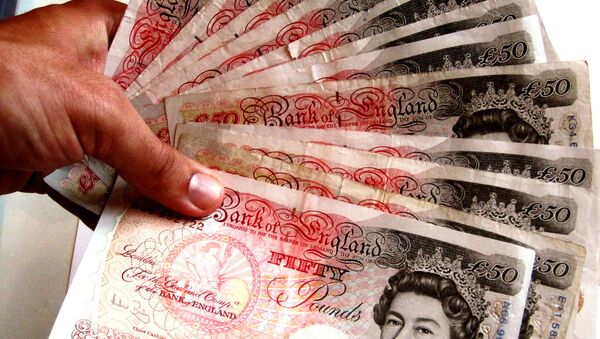Labour's Jack Straw and the Tories' Malcolm Rifkind, the two main parties' senior politicians, were filmed asking for between £5,000 and £8,000 a day for their services. That may be not as much as Wayne Rooney gets but most regular folk would be ecstatic to receive that in a month.
A dozen UK politicians with question marks over their business links were targeted in a sting operation by undercover reporters for the Telegraph newspaper and Channel 4 television. Half of them did not respond, while one said his contacts were ‘not for sale'. But both Jack Straw and Sir Malcolm Rifkind appeared to be happy to attend a meeting in a Mayfair office with reporters posing as agents for the fake Chinese firm.
Since the revelations came to light both politicians have been suspended by their Parliamentary parties, and both have referred themselves to the Parliamentary standards watchdog. Both have also denied any wrongdoing.
In the secretly made recording Jack Straw revealed that he performed consultancy services for an unnamed company receiving £60,000 a year while Malcolm Rifkind said he ‘had to make a living' by performing similar duties in the absence of any other income (despite being paid £67,000 as an MP).
"@HuffPostUK: On the front page now by @asabenn: http://t.co/gLylYqHJuw pic.twitter.com/Kon5AgUoN6" Then let them die on the 'pittance'.
— Ming The Merciless (@MGliksmanMDPhD) February 23, 2015
In conversation with his bogus potential employer Sir Malcolm Rifkind, who was Foreign Secretary under John Major, said he could provide them with access to any British ambassador in the world. For his part, Jack Straw said he operated ‘under the radar' on behalf of his current client to secure a change in EU laws and used ‘charm and menace' in dealing with former Ukrainian prime minister Nikolai Azarov (under President Yanukovych) back in 2011 to make the country alter its laws.
No specifics have been provided and no other names have been named but the picture emerging raises some uncomfortable questions. The Parliamentary standards authority is yet to draw its conclusions but in the minds of most people this would be a clear-cut issue of questionable ethics, at the very least.
In 2015 it's right to be upfront in terms of what you can offer customers. Lots of rewards await you! #Straw #Rifkind pic.twitter.com/Yt1U1GpQO9
— Neil Taggart (@TigerTaggart) February 23, 2015
In dismissing any suggestions of impropriety Sir Malcolm Rifkind pointed to 200 other MPs that have business interests outside of their legislative duties. As if that should provide much comfort to the voter.
Reports on the latest revelations routinely refer to ‘lobbying scandals' in the UK, strenuously avoiding the word ‘corruption'. It is a fine line, indeed. But Transparency International talks about how political scandals hinder UK fight against… corruption.
#Straw and #Rifkind — the personification of why so many of us are repulsed by politicians.
— A Man out of time (@DVATW) February 23, 2015
UK political history of the past couple of decades is punctuated by allegations of graft, bribery and questionable ethics. Suffice it to recall Conservative Party co-treasurer Peter Cruddas resigning in 2012 after secretly filmed footage showed him offering access to the prime minister for £250,000 a year. And Tony Blair's premiership famously started with a controversy over Labour's relationship with Formula 1 boss Bernie Ecclestone involving Labour's U-turn on tobacco advertising back in 1997. And there was of course a long string of similar scandals in between.
Sir Malcolm Rifkind said the undercover video had no bearing on his very significant role as chairman of the parliamentary committee that oversees the work of MI5 and MI6. Considering the sensitivity and importance of the post, one has to wonder if it should be manned by someone open to lobbying on behalf of outside entities.
Never mind Rifkind and Straw. For £50,000 you can get regular access to David Cameron himself http://t.co/YeoaXKaUMp pic.twitter.com/A5RSgEaOAD
— Adam Bienkov (@AdamBienkov) February 23, 2015
On the heels of the ‘Ecclesgate' Tony Blair spoke about how politicians should be ‘purer that pure' on the matter of lobbying. David Cameron all of five years ago said how lobbying practices would be cleared up — and appropriate legislation was enacted. But that doesn't seem to have changed either the practices or their perception.
In Transparency International's Global Corruption Barometer for 2013, 90 percent of Brits said they believed that the UK is run by a few big entities acting in their own interests. If that is the case how come Britain is doing so well in the Corruption Perception Index?


